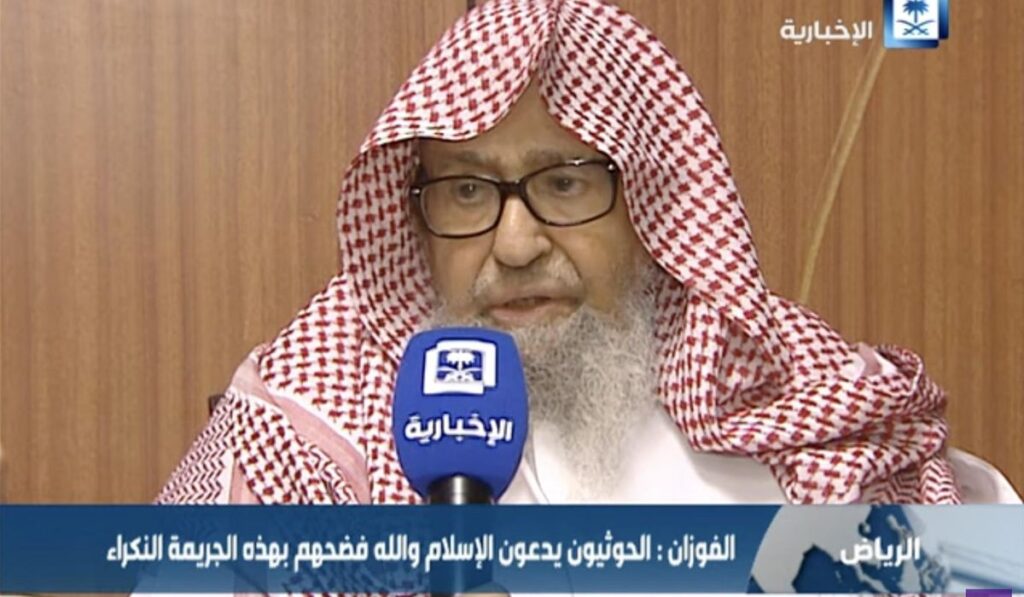Saudi Arabia’s late-Wednesday appointment of a prominent ultraconservative scholar as the new grand mufti, the kingdom’s top religious scholar, marks a clear signal about the direction of religious authority in Riyadh. The move tightens control over theological messaging and will matter for social policy, regional influence, and the kingdom’s place with Western allies. This article breaks down what the appointment means, who it affects, and why conservatives in the United States should care.
The grand mufti role is the public face of religious interpretation in Saudi Arabia and carries real influence over daily life for millions. Naming an ultraconservative figure sends a message that tradition and religious certainty are priorities for the leadership right now. That prioritization will shape how laws are justified and which social reforms are pursued or paused.
For international observers, the choice will be read as more than ceremonial. It’s a clearinghouse for religious guidance that reaches the Gulf, North Africa, and Muslim communities tied to Saudi institutions. Nations that work with Riyadh will need to factor theological positions into diplomatic and security planning.
From a Republican viewpoint, stability matters above all, and strong religious institutions can offer that stability when paired with reliable security cooperation. The United States and its partners value predictable allies who can stand firm against regional rivals and extremist movements. A conservative grand mufti could reinforce conservative governance that resists radical fringe ideologies, which is in America’s security interest.
That same appointment also complicates conversations about human rights and social liberalization, areas where Western audiences expect progress. Conservatives in the U.S. who back free societies will watch how religious rulings affect women’s rights, religious minorities, and freedom of expression. The balance Riyadh strikes between security, religious order, and limited social reform will shape long-term relations with Western democracies.
Economic priorities in Riyadh, including attracting investment and tourism, are tied to perceptions about social openness. A more conservative religious leadership could slow certain modernizing moves intended to diversify the economy beyond oil. Investors and visitors look for clear rules and predictable social norms, and religious authorities now have a bigger role in setting those expectations.
The appointment also has regional power implications. Saudi religious authority has long carried weight across the Sunni Arab world, and a conservative grand mufti will be a voice in doctrinal debates that influence allied capitals. That influence can be a stabilizing force if it pushes moderation, or it can harden divides if it backs uncompromising positions in inter-state disputes.
Religious rulings affect the hajj and umrah, events that bring millions to Saudi soil each year and carry spiritual as well as diplomatic weight. Guidance from the grand mufti on matters of ritual, crowd management, and permissible conduct will touch pilgrims and foreign governments alike. Ensuring safe and orderly pilgrimages is a practical priority that sits alongside theological concerns.
Domestically, the new mufti’s voice will matter in public messaging and education, shaping curricula and media narratives. That influence extends into how religious legitimacy is taught and transmitted to new generations. For conservatives watching from abroad, it’s worth noting how theological framing intersects with civic stability and national identity.
U.S. foreign policy will need to balance clear principles with pragmatic cooperation when engaging with Riyadh under this religious shift. Republicans typically favor strong alliances that can deter malign actors and preserve regional balance, even when disagreements arise over social policy. Expect U.S. officials to press discreetly on human rights while prioritizing security and energy ties.
In practice, the new grand mufti’s decisions will play out slowly across courts, mosques, and public life, not overnight. Observers should track issued fatwas, education directives, and statements tied to major national events as early indicators. Those signals will reveal whether this appointment tightens an older religious hand or adapts pragmatic positions for a changing world.
For American conservatives, the key takeaway is realpolitik: the appointment is a reminder that international partnerships rest on shared interests as much as shared values. A strong, consistent Saudi partner can help counter regional threats and support global stability. The challenge going forward will be managing differences without undercutting cooperation on security and prosperity.



